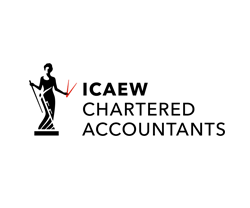Last updated: 6 January 2021
- Support for businesses forced to close – top up grants and other grants
Support Finder
The government has now launched a Coronavirus financial support finder for business. This is a useful tool as you can enter in your specific details to find out which support you can apply for and read up on the detailed background information for each scheme.
It is worth looking at this as there may be additional support available which you had not considered.
Below you will find our summary of what help is available for businesses affected by the Coronavirus.
Please be vigilant for possible fraud. Scammers will use uncertainty in these areas to obtain bank details. If in doubt ask us.
Extension of the Coronavirus Job Retention Scheme
The Government has now released the full guidance for the scheme here.
With the imposition of national lockdown from 5 November, the Government has postponed the introduction of the Job Support Scheme and extended the job retention scheme until the end of March 2021.
The scheme will operate in the same way as it did in August, i.e. employees can be furloughed either full time or part-time with 80% of hours not worked being funded by the government. Funding is capped at £2,500 per month per employee on a pro rata basis where applicable.
Employers will still be responsible for paying employees for any hours they do work and the grant will not cover any employer NICs or pension contributions.
The scheme is open to employers who may not have previously claimed under the previous job retention scheme. Eligible employees are those who have been included on a payroll submission between 20 March 2020 and 30 October 2020.
If employees were made redundant after 23 September 2020 you can re-hire them and place them on furlough.
To claim under the scheme employers will need to:
- designate affected employees as ‘furloughed workers’, and notify employees of this change. Changing the status of employees remains subject to existing employment law and, depending on the employment contract, may be subject to negotiation; and
- submit information to HMRC about the employees that have been furloughed and their earnings through a new online portal. Where we have been appointed as payroll agent we will do this for our clients
The Government announced on 10 November the following:
- The scheme will be reviewed in January 2021
- Furlough agreements must be in place by 13 November 2020 (see our pro forma at the bottom of this page)
- Furlough claims for a particular month must be submitted within two weeks of the end of that month
- Furlough claims can only be amended for up to 28 days after the end of the claim month
- Furlough pay calculations will be based on:
- 2019/20 pay for employees on your payroll on 19 March
- October 2020 pay for employees who joined after 19 March
Support for Businesses Forced to Close
Updated 6 January 2021
One off top up grants
The Government announced on 5 January that a one off grant will be made available to businesses operating out of premises that are required to close due to lockdown restrictions. The grant is administered through local authorities and will be paid on a per property basis. The amount of the grant will be based on the rateable value of the premises:
- £15,000 or under – £4,000
- Over £15,000 but less than £51,000 – £6,000
- £51,000 or over – £9,000
Local Restrictions Support Grant Scheme
The Government, through local authorities, will also provide grant funding for affected businesses. The amount of the grant will be dependant on the rateable value of the premises being forced to close:
- £15,000 or under – £1,334 per month
- Over £15,000 but less than £51,000 – £2,000 per month
- £51,000 or over – £3,000 per month
Other grants
The Government has also set aside a fund of £594m for businesses that are forced to close but are not eligible for the above grants. Applications should be made to your local authority.
Coronavirus Job Support Scheme
This scheme has been postponed until after the extended job retention scheme ends.
The scheme was originally designed to protect “viable” employees jobs. If the scheme is introduced in April 2021 it is likely to be similar to the scheme outlined below.
To qualify for the scheme the employee must work at least 20% of their normal hours. The employer pays the employee for the time worked.
For the hours the employees doesn’t work, the employer contributes 5%, HMRC contributes 61.67%.
The contribution paid by the employer is capped at £125 per month and the HMRC contributions is capped at £1,541.75 per month. This is much more generous than the scheme as originally announced.
The scheme is UK-wide. All small and medium-sized businesses are eligible, but larger businesses will be required to prove they’ve been adversely affected by coronavirus. Employers can take part regardless of whether they used the furlough scheme. Those retaining furloughed staff on shorter hours can be part of the scheme and still get the job retention bonus announced earlier this summer. Employees cannot be on a redundancy notice while taking part.
The Job Retention Bonus
Since the job retention scheme is extended until the end of March 2021, the payment of this bonus has been postponed.
The original plan was for a one-off £1,000 incentive to be paid to employers for each one of their furloughed staff members they still employed at the end of January 2021. This was designed to encourage businesses not to make redundancies once the job retention scheme ended.
If the bonus is simply delayed we expect employers would be able to claim the bonus in respect of employees:
- Who have been furloughed at some point between April 2020 and March 2021; and
- Who are still employed by them on 31 March 2021; and
- Whose average earnings for a period of time after the furlough scheme ends is above £520 month
Paying Sick Pay to Staff Absent Due to COVID-19
To support employers experiencing increases in costs or financial disruptions the government will bring forward legislation to allow small and medium-sized employers to reclaim Statutory Sick Pay (SSP) paid for sickness absence due to COVID-19.
The government will refund up to two weeks’ SSP per eligible employee who has been off work because of COVID-19. The SSP rate is currently £95.85 per week.
The eligibility criteria for the scheme will be as follows:
- Employers with fewer than 250 employees will be eligible
- Employers must maintain records of staff absences, but employees will not need to provide a GP fit note
- The eligible period for the scheme will commence the day after the regulations on the extension of Statutory Sick Pay to self-isolators comes into force
Extension of the Self Employed Income Support Scheme
The latest Government guidance can be found here here.
The scheme is extended for a further 6 months beginning 1 November 2020.
Sole traders who qualified for the first two grants are eligible to claim two further grants. The first grant will cover 80% of trading profits between 1 November 2020 and 31 January 2021, capped at £7,500, and will be paid in a single instalment. The grants can be claimed online from 30 November.
The level of the second grant has yet to be set. The Government says this will happen “in due course”.
Only those eligible for the SEISS scheme which ran between April 2020 and October 2020 can apply and you need to have been adversely affected by coronavirus to claim.
On 24 November 2020 HMRC published further guidance on eligibility to claim the third grant. Not only does the business need to be adversely affected by coronavirus, but must also:
- Be currently trading but impacted by reduced demand due to coronavirus; or
- Have been trading but temporarily unable to do so due to coronavirus
And:
- Intend to continue to trade
- Reasonably believe there will be a significant reduction in trading profits due to reduced activity, capacity or demand or inability to trade due to coronavirus
The significant reduction in trading profits test will be applied to the year as a whole. This means that if your profits between November and January were reduced but you made up for it in February and March then you would be ineligible to claim the third grant.
Universal Credit
An application for Universal Credit may be an option for those who do not qualify for the schemes detailed above.
You can find detailed guidance on claiming Universal Credit here.
Coronavirus Bounce Back Loan
This scheme has been devised to help small and medium-sized businesses affected by coronavirus to apply for loans of up to £50,000. You cannot apply for this loan if you are already claiming funding under the Coronavirus Business Interruption Scheme, however, if you have received a loan of up to £50,000, you can arrange to transfer it to a Bounce back Loan with your lender until 4th November 2020.
Borrowing can be between £2,000 to £50,000, the government will guarantee 100% of the loan and there will not be any fees or interest to pay for the first 12 months.
There is specific eligibility criteria, we suggest that if you are thinking of applying for these loans you will need to have your accounts up to date.
You can apply through Gov.uk how to apply. There are 11 lenders participating in the scheme, you should approach a suitable lender yourself via the lender’s website. You will be required tO fill in an application form and self declare you are eligible. The lender will decide whether to offer you a loan or another type of finance and you’ll be responsible for repaying 100% of the amount borrowed.
You have until 31 January 2021 to apply for a Business Bounce Back Loan
These loans can now be repaid over 10 years (previously six) and you can also take payment holidays and interest- only repayment periods.
Other Loans
For loan amounts greater than £50,000 you will need to apply under the Coronavirus Business Interruption Loan Scheme. You can find details of the CBILS and eligibility criteria here.
The deadline to apply for CBILS loan is 31 January 2021.
The Government has also promised a preferential loan scheme to support business through the difficulties. More details can be found here.
Support for Businesses That Pay Business Rates
Government will introduce a business rates retail holiday for retail, hospitality and leisure businesses in England for the 2020 to 2021 tax year.
Businesses that received the retail discount in the 2019 to 2020 tax year will be rebilled by their local authority as soon as possible.
A £25,000 grant will be provided to retail, hospitality and leisure businesses operating from smaller premises, with a rateable value between £15,000 and £51,000.
Any enquiries on eligibility for, or provision of, the reliefs should be directed to the relevant local authority. Guidance for local authorities on the business rates holiday will be published by 20 March.
A discretionary fund has been set up to accommodate certain small businesses previously outside the scope of the business grant funds scheme.
Support for businesses that pay little or no business rates
The government will provide additional funding for local authorities to support small businesses that already pay little or no business rates because of small business rate relief (SBBR). This will provide a one-off grant of £10,000 to businesses currently eligible for SBRR or rural rate relief, to help meet their ongoing business costs.
If your business is eligible for SBRR or rural rate relief, you will be contacted by your local authority – you do not need to apply.
Funding for the scheme will be provided to local authorities by government in early April. Guidance for local authorities on the scheme will be provided shortly.
Professional Service Grants
The government has allocated £20m of funding which will be made available as grants to small businesses recovering from the impact of Coronavirus. The grants can be for between £1,000 and £5,000 and can be used to fund new equipment and technology along with specialist professional advice
Support Package for Innovative Firms
The chancellor announced on 20April a £1.25 billion government support package for UK businesses driving innovation and development.
This is described as Coronavirus Future Fund.
Deferral of VAT Liabilities
VAT payments due between 23 March 2020 and 30 June 2020 could be deferred. This means businesses do not need to pay over these VAT liabilities until the end of March 2021.
The deferral applies automatically and businesses do not need to apply for it. VAT refunds and reclaims will be paid by the government as normal. You do still need to complete your VAT return on time.
Businesses are now able to spread the deferred VAT payment due by 31 March 2021 across the 2021-22 financial year.
Deferral of July Income Tax Payments on Account
Income Tax Self-Assessment payments due by 31 July 2020 can be deferred until 31 January 2021. This is an automatic offer with no applications required. No penalties or interest for late payment will be charged in the deferral period.
This originally covered only the self employed only but now covers all tax payers. HMRC has now stated those who have to pay up to £30,000 in tax by 31 January 2021 will be able to use their ‘Time to Pay’ service to pay over an additional 12 months running to 31 January 2022. Further updates are due on this.
Difficulty Paying Taxes
The Government has set up a helpline for businesses and the self employed who are concerned about not being able to pay their tax.
There are more details here.
Official Guidance for Businesses and Employers
The Government’s guidance for employers can be found by here.
Extension to the Company Accounts Filing Deadline
Companies House have automatically applied a temporary three month extension to the statutory accounts filing deadline. Companies now have 12 months from the end of their accounting period to submit their accounts.
This does not affect the corporation tax payment deadline, which remains at 9 months and one day from the end of the accounting period.
Mortgage holidays
Usually asking for a holiday from mortgage payments has a detrimental effect on your credit rating. Banks are confirming this will not be the case for COVID-19. You should contact your own bank to request a payment holiday if one is required.
We’ve been given the guide below which details what lenders are offering by way of mortgage holidays. We’ve not checked its accuracy but you may find it useful.
Delay to IR35
The changes to IR35 for contractors working in the private sector have been delayed by a year.
Resources We Have Prepared for You
Can company directors furlough themselves?
HMRC have recently updated their guidance regarding company directors, here is the recording of our webinar from 8 April detailing the much needed updated information from HMRC for sole directors and the Job Retention Scheme
A copy of the slides are available here.
Director Furlough Board Minute
You can access this here
Furlough Agreement
You can download a legal agreement for furloughing an employee here. This has been generously provided by Daniel Barnett, an Employment Law Barrister. His web site is here.
Cash Flow Spreadsheet
We strongly advise preparing cashflow projections to cover at least the next 12 weeks.
We have created a cash flow forecast spreadsheet, which you can download here
Make sure you save a copy locally (Use File/Save As) and don’t just edit this version or we’ll all see your business!!
HR Support
Our fee protection insurers provide an HR Support line which is available to our clients. If you require this then please contact us for the details.





